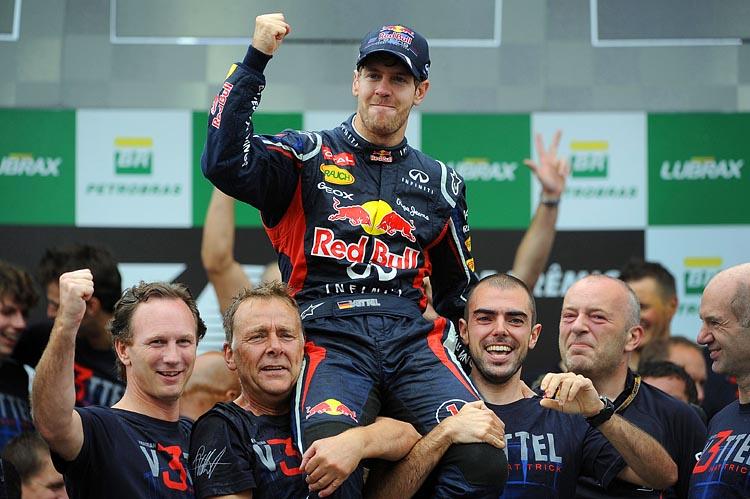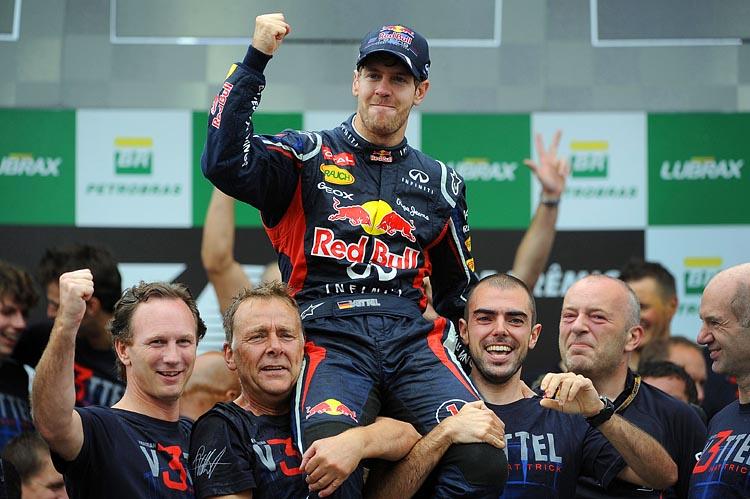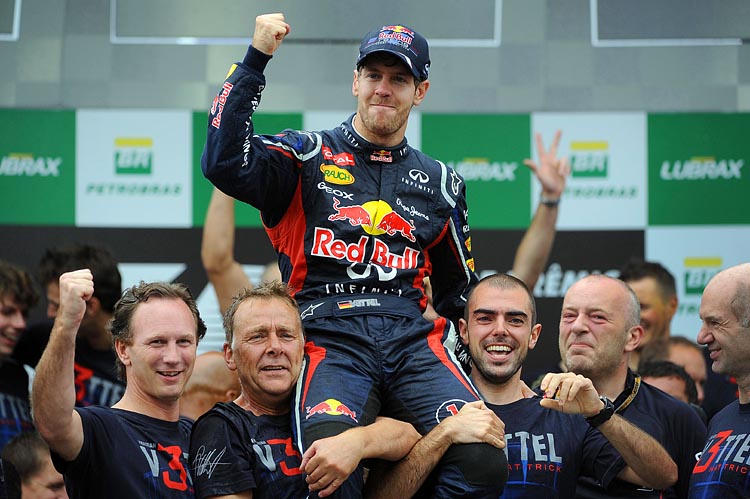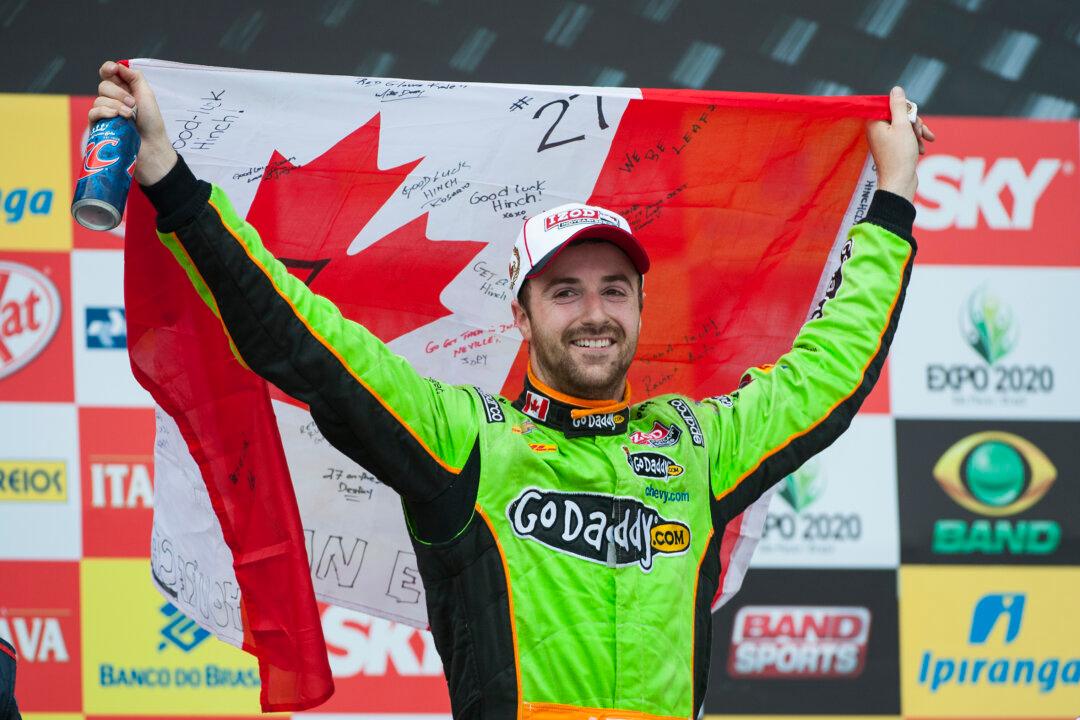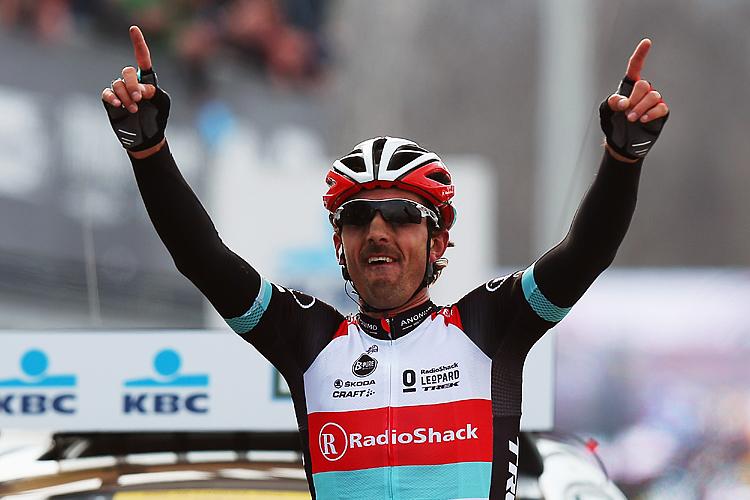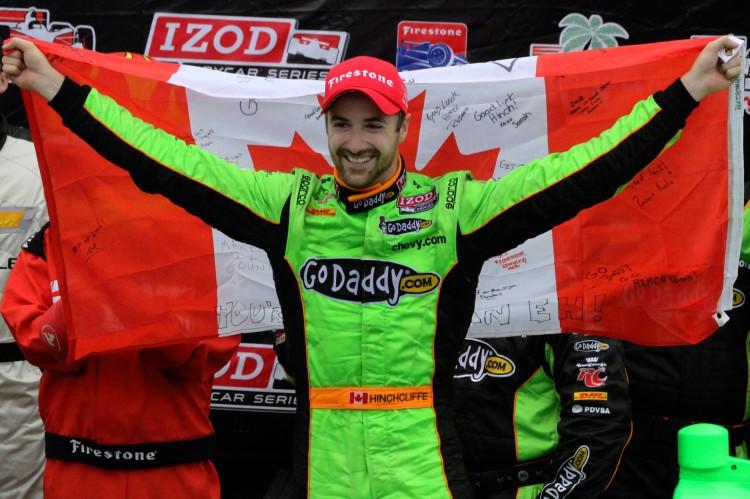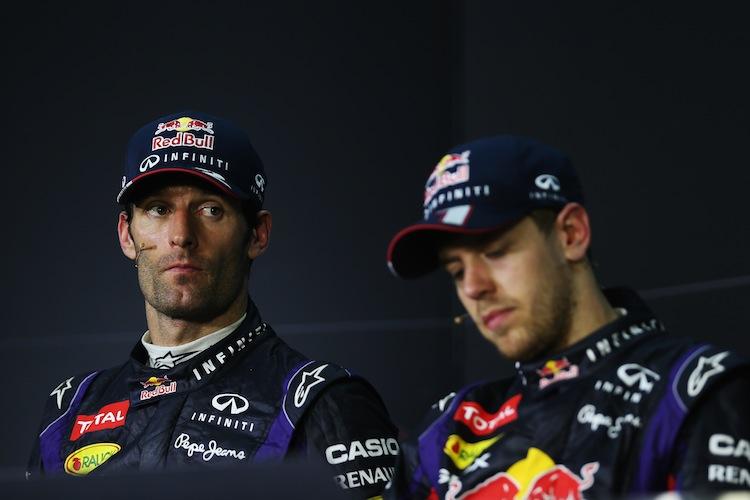After a battle which came down to the final laps of the final race of the season, Red Bull’s Sebastian Vettel won his third consecutive World Driving Championship (WDC), to become one of only three drivers to win three in a row in Formula One history and the youngest to do so by six years.
This comes after Vettel and his teammate Mark Webber won Red Bull its third consecutive Constructors’ Championship, beating F1 icons Ferrari and McLaren, in Red Bull’s eighth season in the sport.
Vettel is unquestionably one of the best drivers on the grid, and he had one of the best cars all three seasons, but the 25-year-old German driver had to work hard in 2012.
After a win in the fourth race, Vettel and Red Bull were eclipsed by McLaren through the middle of the season. Then with seven races left, Red Bull designer Adrian Newey found whatever the car had lacked, and Vettel won four in a row to take the points lead.
“The most important thing throughout the season is that we kept pushing and remained ourselves,” Vettel said on the team’s website.
“We just try to do our thing and stick to the route that we know and that’s what made the difference. Some people try to play games, but we never get distracted, we keep going our way.
“Everyone at Milton Keynes [Red Bull’s home] and here at the circuit, they are always pushing so hard and we really stepped up our game in the second half of the season.”
McLaren, led by Lewis Hamilton, resurged in the final races, but it was too late for the British team; only Ferrari’s Fernando Alonso, himself chasing a third WDC, had a chance to beat the amazing German.
Alonso arguably outdrove Vettel in 2012, because he had so much less car to work with. The Ferrari F2012 started out well off the pace and never really caught up; only inspired performances by Alonso—and late in the season, by teammate Felipe Massa as well—kept the Spanish two-time champ in the hunt, and kept Ferrari in the fight for Constructors’ points.
For the third time, Alonso’s quest for a third WDC came down to the final race of the season, and for the third time, he finished second.
For the third year running, Vettel came out on top.
Vettel Disproves Detractors
This year, 2012, should be the year that silences the young German’s detractors. In the past, it was argued that the Red Bull was such a superior car and anyone would win in it (despite Vettel’s teammate Webber not doing as well.)
It was also said that Vettel was indeed a master of staying ahead, and saving his tires when he had the lead, but the young star couldn’t overtake.
